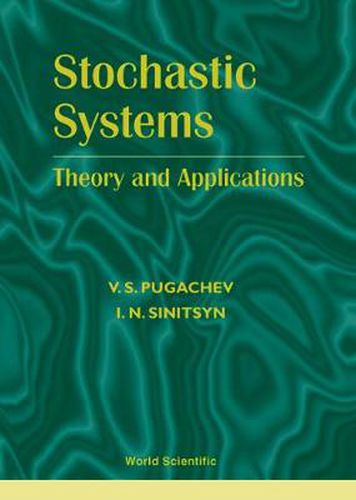Readings Newsletter
Become a Readings Member to make your shopping experience even easier.
Sign in or sign up for free!
You’re not far away from qualifying for FREE standard shipping within Australia
You’ve qualified for FREE standard shipping within Australia
The cart is loading…






A presentation of the general theory and basic methods of linear and nonlinear stochastic systems (StS) - in other words, dynamical systems described by stochastic finite - and infinite-dimensional differential, integral, integrodifferential and difference equations. The general StS theory is based on the equations for characteristic functions and functionals. The text outlines StS structural theory, including direct numerical methods, methods of normalization, equivalent linearization and parametrization of one- and multi-dimensional distributions, based on moments, quasimoments, semi-invariants and orthogonal expansions. Special attention is paid to methods based on canonical expansions and integral canonical representations. About 500 exercises and problems are provided. The authors also consider applications in mathematics and mechanics, physics and biology, control and information processing, operations research and finance.
$9.00 standard shipping within Australia
FREE standard shipping within Australia for orders over $100.00
Express & International shipping calculated at checkout
A presentation of the general theory and basic methods of linear and nonlinear stochastic systems (StS) - in other words, dynamical systems described by stochastic finite - and infinite-dimensional differential, integral, integrodifferential and difference equations. The general StS theory is based on the equations for characteristic functions and functionals. The text outlines StS structural theory, including direct numerical methods, methods of normalization, equivalent linearization and parametrization of one- and multi-dimensional distributions, based on moments, quasimoments, semi-invariants and orthogonal expansions. Special attention is paid to methods based on canonical expansions and integral canonical representations. About 500 exercises and problems are provided. The authors also consider applications in mathematics and mechanics, physics and biology, control and information processing, operations research and finance.